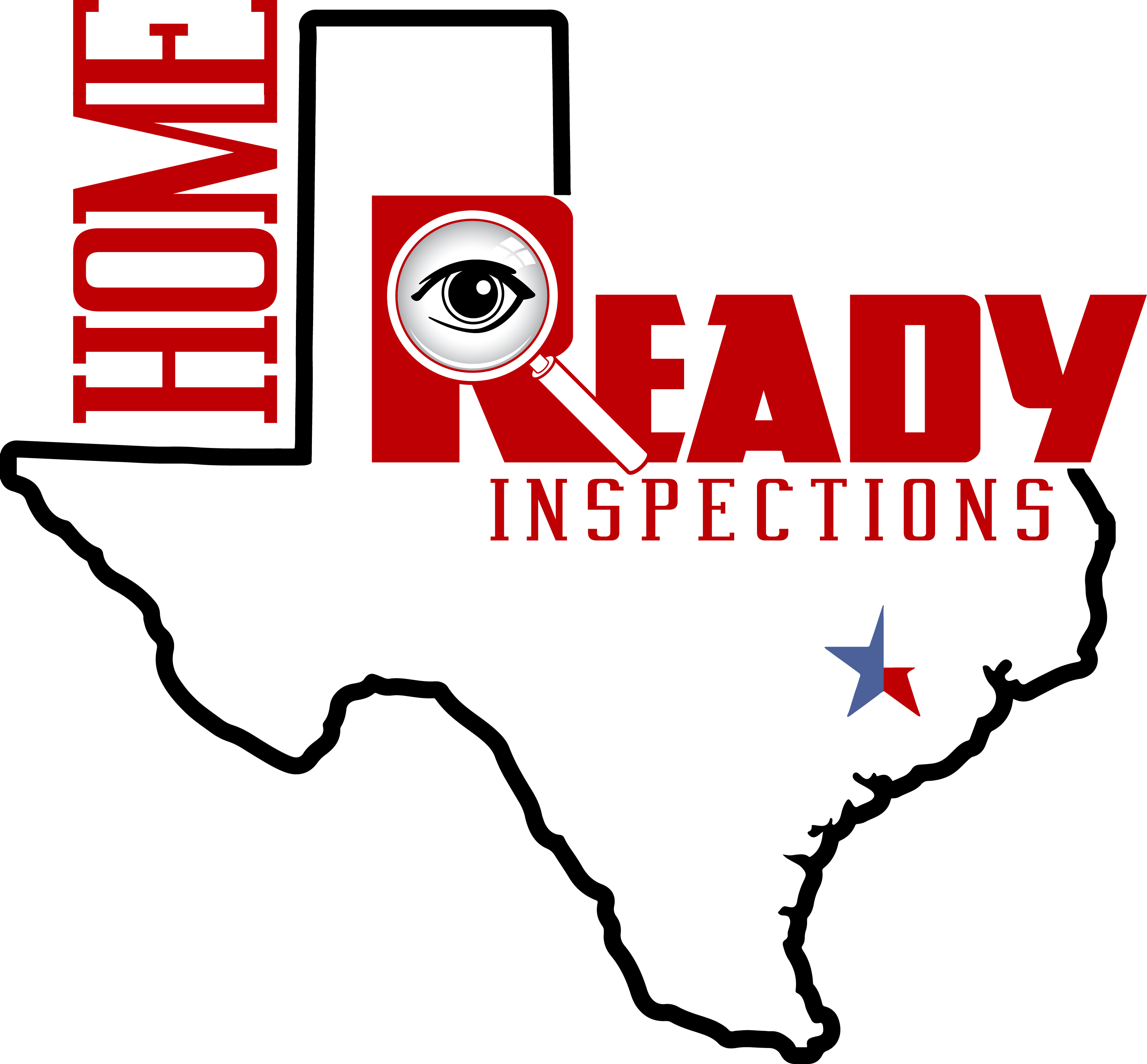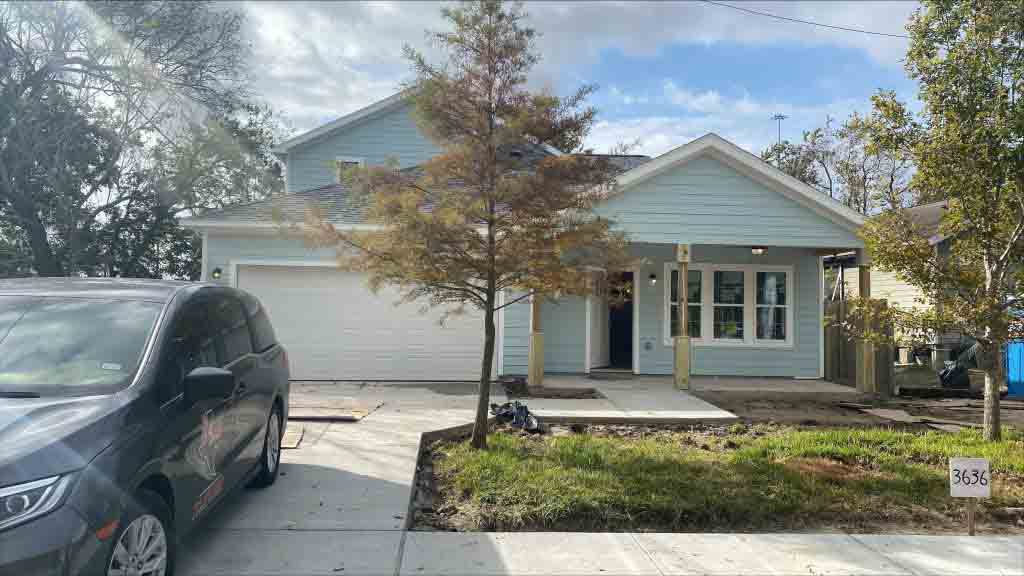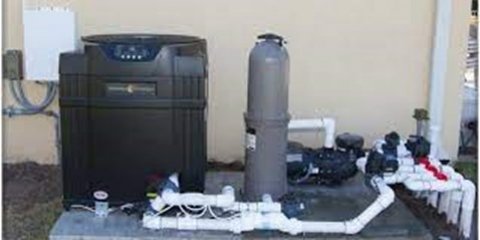Heating a swimming pool can consume a lot of energy and add up to high heating bills. You can improve your swimming pool’s heating and energy efficiency by installing an energy efficient pool heater and by taking steps to reduce pool heating costs.
A heat pump is a device that uses a small amount of energy to move heat from one location to another. Heat pumps used for heating pools transfer heat from the outdoors into the water. Because they use heat that is already available and just move it from one place to another, they use less electricity.
How a Heat Pump Pool Heater Works
As the pool water circulates through the pool pump, it passes through a filter and the heat pump heater. The heat pump heater has a fan that draws in the outside air and directs it over the evaporator coil. Liquid refrigerant within the evaporator coil absorbs the heat from the outside air and becomes a gas. The warm gas in the coil then passes through the compressor. The compressor increases the heat, creating a very hot gas that then passes through the condenser. The condenser transfers the heat from the hot gas to the cooler pool water circulating through the heater. The heated water then returns to the pool. The hot gas, as it flows through the condenser coil, returns to liquid form and back to the evaporator, where the whole process begins again.
Higher efficiency heat pump pool heaters usually use scroll compressors versus the reciprocal compressors of standard units.
Heat pump pool heaters work efficiently as long as the outside temperature remains above the 45ºF–50ºF range. The cooler the outside air they draw in, the less efficient they are, resulting in higher energy bills. However, since most people use outdoor pools during warm and mild weather, this usually isn’t an issue.
Selecting a Heat Pump Pool Heater
Heat pump pool heaters cost more than gas pool heaters, but they typically have much lower annual operating costs because of their higher efficiencies. With proper maintenance, heat pump pool heaters typically last longer than gas pool heaters. Therefore, you’ll save more money in the long run.
When selecting a heat pump pool heater, you should consider its:
- Size
- Efficiency
- Costs.
Sizing a Heat Pump Pool Heater
You should have a trained pool professional perform a proper sizing analysis for your specific pool to determine pool heater size.
Sizing a heat pump pool heater involves many factors. Basically, a heater is sized according to the surface area of the pool and the difference between the pool and the average air temperatures. Other factors also affect the heating load for outdoor pools, such as wind exposure, humidity levels, and cool night temperatures. Therefore, pools located in areas with higher average wind speeds at the pool surface, lower humidity, and cool nights will require a larger heater.
Heat pump pool heaters are rated by Btu output and horsepower (hp). Standard sizes include 3.5 hp/75,000 Btu, 5 hp/100,000 Btu, and 6 hp/125,000 Btu.
To calculate an approximate heater size for an outdoor swimming pool, follow these steps:
- Determine your desired swimming pool temperature.
- Determine the average temperature for the coldest month of pool use.
- Subtract the average temperature for the coldest month from the desired pool temperature. This will give you the temperature rise needed.
- Calculate the pool surface area in square feet.
- Use the following formula to determine the Btu/hour output requirement of the heater:
Pool Area x Temperature Rise x 12
This formula is based on 1º to 1-1/4ºF temperature rise per hour and a 3-1/2 mile per hour average wind at the pool surface. For a 1-1/2ºF rise multiply by 1.5. For a 2ºF rise multiply by 2.0.
Determining Heat Pump Pool Heater Efficiency
The energy efficiency of heat pump pool heaters is measured by coefficient of performance (COP). The higher the COP number, the more efficient. The federal test procedure for heat pump pool heaters sets the test conditions at 80ºF ambient dry bulb, 63% relative humidity, and 80ºF pool water. COPs usually range from 3.0 to 7.0, which converts to an efficiency of 300%–700%. This means that for every unit of electricity it takes to runs the compressor, you get 3–7 units of heat out of the heat pump.
Estimating Heat Pump Pool Heater Costs and Savings
For an outdoor pool, use the following tables to help estimate your annual heat pump pool heater costs and savings compared to using an electric resistance or a gas pool heater.
Table 1 estimates annual heat pump pool heating costs by location, by water temperature, and with or without using a pool cover.



Recent Comments